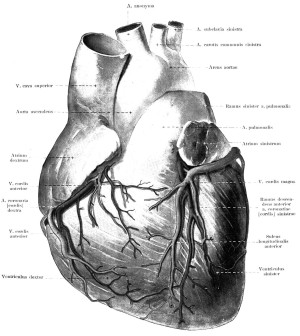- 8 Ways to Increase Dopamine Naturally
- 7 Best Breads for Maintaining Stable Blood Sugar
- Gelatin vs. Collagen: Which is Best for Skin, Nails, and Joints?
- The Long-Term Effects of Daily Turmeric Supplements on Liver Health
- Could Your Grocery Store Meat Be Causing Recurring UTIs?
- Are You Making This Expensive Thermostat Error This Winter?
- Recognizing the Signs of Hypothyroidism
- 10 Strategies to Overcome Insomnia
- Could Artificial Sweeteners Be Aging the Brain Faster?
- Techniques for Soothing Your Nervous System
Sunlight Might Be Good for Your Blood Pressure: Study


MONDAY, Jan. 20Sunlight is known to lower blood pressure, but now a team of British researchers has figured out why.
What they found is that nitric oxide stored in the top layers of the skin reacts to sunlight and causes blood vessels to widen as the oxide moves into the bloodstream. That, in turn, lowers blood pressure.
“This is an unexpected finding, in that the skin has not been considered to be involved in blood pressure regulation,” said lead researcher Martin Feelisch, a professor of experimental medicine and integrative biology at the University of Southampton.
Feelisch said he thinks — if this finding is confirmed in further research — exposure to ultraviolet light might help reduce the risk for heart disease. “That’s where it becomes interesting,” he said.
Among people with normal blood pressure, the effect of ultraviolet light is modest — a drop in blood pressure of between 2 and 5 millimeters of mercury (mmHG), Feelisch said.
“This is a mild effect,” he said. “But if you repeat this study in people with high blood pressure, I would predict you will see a more substantial drop.”
Avoiding sunlight or using sunblock constantly out of a fear of skin cancer could be a new risk factor for heart disease, Feelisch said.
He isn’t suggesting that people should sunbathe or use tanning beds in hopes of lowering blood pressure, however. What he recommended is spending a moderate amount of time outdoors.
“People are dying of skin cancer, and sunlight is the only known risk factor that contributes to skin cancer,” Feelisch said. “We are fully aware of that and don’t say everyone should get as much sun as possible. There is a very real risk — but so is the risk for [heart] disease. One of the main contributors to the disease is high blood pressure.”
Excessive exposure to sunlight carries the risk of developing skin cancer, Feelisch said, but too little might increase the risk of heart disease. However, more people die from heart disease than from skin cancer, he said.
“We believe current public health advice, which is dominated by concerns of skin cancer, needs to be carefully reassessed,” he said. “It’s time to look at the balance of risk for skin cancer and cardiovascular disease.”
The report was published Jan. 20 in the Journal of Investigative Dermatology.
Dr. Gregg Fonarow, associate chief of the division of cardiology at the University of California, Los Angeles, David Geffen School of Medicine, said high blood pressure is a major risk factor for stroke and kidney disease, in addition to heart disease.
That blood pressure levels are higher during winter and further away from the equator has been known, but the reasons behind these observations had not been entirely clear, he said.
“This new study finds that UV light exposure to the skin induced nitric oxide release and modestly lowered blood pressure, suggesting that this may play a role in modulating blood pressure,” said Fonarow, a spokesman for the American Heart Association.
Further studies are needed to determine the degree to which varying levels of light exposure might play a role in regulating blood pressure and reducing heart risk, he said.
For the study, Feelisch and his colleagues exposed 24 people with normal blood pressure to ultraviolet A radiation equal to spending about 30 minutes in the sun.
They found that the exposure widened the blood vessels, which significantly lowered blood pressure and changed the levels of nitric oxide in the blood.
More information
Visit the American Heart Association for more about high blood pressure.
Source: HealthDay
Copyright © 2026 HealthDay. All rights reserved.










